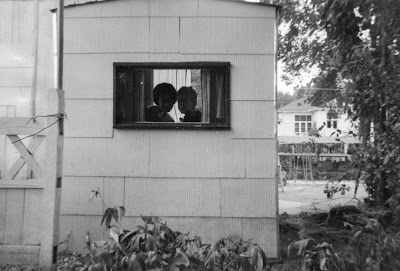At this time of
year, days in the 50s are a gift. Meteorological winter begins in December, but
some years fall lingers a while. Rain and snow are forecast in a couple of
days, but for now the skies are blue. I’m better prepared for winter this year
than many other years. I have two pairs of fairly decent boots and a coat
that’s not only warm but a shade of red-orange likely to convince hunters that
I am not a deer. Rifle season opens the same day the snow is predicted.
I’m clearing brush
and deadwood from a grove of hickory and oak on the north hillside, within
sight of the county road. The neighbors are busy, too, taking advantage of the
warm weather, driving ATVs and tractors back and forth. They are the norm here;
I’m the one swanning around in the timber pretending to be a druid.
Last year a large
red oak tree came down, falling from the roots, leaving a small grotto where it
came out of the earth. I pile brush and branches around the spot, leaving one
log as a barrier. This is the kind of place that was once considered an
entrance to the Underworld. Scrub woodlands in the Great Plains do not usually run
to caves, but any hole in the ground will do in a pinch. I’ll leave my first
offering today, a fallen oak branch with still-green leaves. If I am
respectful, one day I may be allowed to enter the caverns below the surface, to
journey in the land of the ancestors.
This cold season
promises new life, even before the year turns toward spring. Crows race
overhead in flocks, shouting insults at jays and titmice. Cedars raise evergreen branches, lighting the woodlands. Barred owls call in
the afternoon. Cutleaf grape ferns have sent up new seed spikes above their
purple foliage.
The sun drops low
early this close to the solstice. On the north side of the hill I can feel the
change in the air by mid-afternoon. In the last few days I’ve opened the way to
a couple of deer trails and discovered that the area I’d like to clear is about
twice as large as I had imagined. So far I haven’t even attempted to clear out
the buck brush and greenbriar. I’ll leave the gooseberry thickets alone.
What I really want
to accomplish here is to create a place where I can stand at the center and
turn from north to north, from oak to hickory and back, looking from earth to
sky, from the gravel road to the rough hilltop. I want to watch the sun climb
higher as the winter grows colder. I want to see the spring begin with tiny signs
at first, bright yellow buds on the hickories, the smallest changes in the wind
from day to day.
I want to greet the
seasons here, but also the unexpected bounty of the out-of-season. Warm days in
fall, sudden freezes in spring, sharp winds and blue skies are all welcome. The
weather twists and twines through the seasons like deer trails through the
timber, like wild grape vines on the trees. I want to turn with the year. I
want to meet each surprise with open eyes.

















